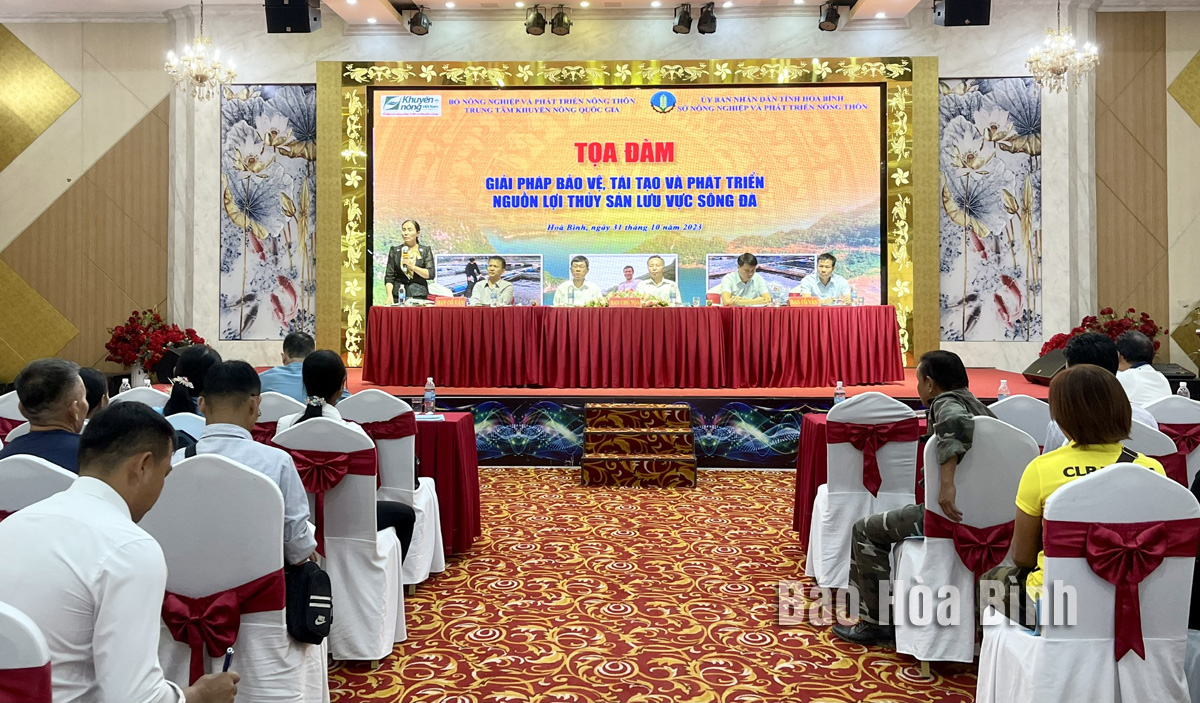(HBO) – A seminar to discuss measures to protect, regenerate, and sustainably develop aquatic resources in the Da River basin was held by the provincial Department of Agriculture and Rural Development on October 31.
Participants at the seminar.
The event was attended by representatives from
the National Agricultural Extension Centre(NAEC), Directorate of
Fisheries under the Ministry of Agriculture and Rural Development, relevant
departments and sectors of Hoa Binh province, local aquaculture enterprises and
cooperatives, and outstanding farmers in Mai Chau and Da Bac districts.
Five rivers flowing through Hoa Binh province,
along with 308 reservoirs form large water bodies, contributing to diversifying
the aquatic ecosystem. Aquatic resources in rivers and lakes in the locality
are rich in volume and species, with many rare aquatic species.
However, in recent years, human activities have
impacted aquatic resources. The community is not fully aware of the
importance of protecting the environment and aquatic resources.
The pressure from increasing population,
overexploitation of fisheries, rapid urbanisation in riverside and lake areas,
and the deterioration of water quality, are also the main causes behind the
decline in aquatic resources.
Participants discussed measures to improve the
efficiency of state management and law enforcement in protecting the
environment and aquatic resources; handling acts of destructive exploitation of
aquatic resources; and supporting communes in the Da River lake area in
aquaculture development.
The seminar aims to raise awareness of and
provide relevant legal knowledge related to local people, especially
aquaculture farmers, thus contributing to preventing destructive exploitation
of aquatic resources, promoting sustainable development of the fishery
industry, improving livelihoods for local residents, and regenerating aquatic
species that are at risk of being threatened or extinct.



